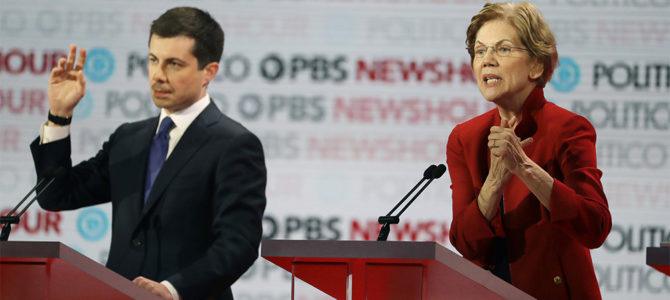During Thursday’s 2020 Democratic debate, Mayor Pete Buttigieg was far and away the most popular target for his fellow candidates.
In a notable scuffle with Senator Amy Klobuchar, she attacked Buttigieg’s success record, particularly his failed DNC chair race, stating “winning matters.” However, the bigger battle was when Senator Elizabeth Warren attacked Buttigieg on money in politics.
Warren criticized the small town mayor for hosting an exclusive fundraiser at an expensive winery in Napa, California for major donors. She claimed that events like these open the mayor up to corruption by giving exclusive access, rendering him “bought and paid for” by billionaires.
Buttigieg jabbed at Warren after she finished talking about her grassroots-funded campaign, saying, “Can’t help but feel that might have been directed at me.”
“Billionaires in wine caves should not pick the next president of the United States,” Warren responded.
It is interesting that Warren is claiming another candidate is in the pocket of donors, as taking a look at the interests of her contributors shows a remarkable overlap with her primary policies. More specifically, Warren has accepted donations from 21 colleges and universities within the past five years, and can count institutions of higher education as 9 of her top 20 donors for her 2020 race.
Warren is pushing an intensive plan for debt-free college, which would make taxpayers fund the college tuition of lower-income students, taking the economic burden off of the schools’ endowments. Her plan would, in fact, entail the government giving money directly to the universities, the very institutions that have played a major role in funding her campaigns both for the Senate and now for the presidency.
It is therefore laughable for her to lecture fellow candidates about their relationships with their donors, when her policies make it clear that she herself has been “bought and paid for.”









